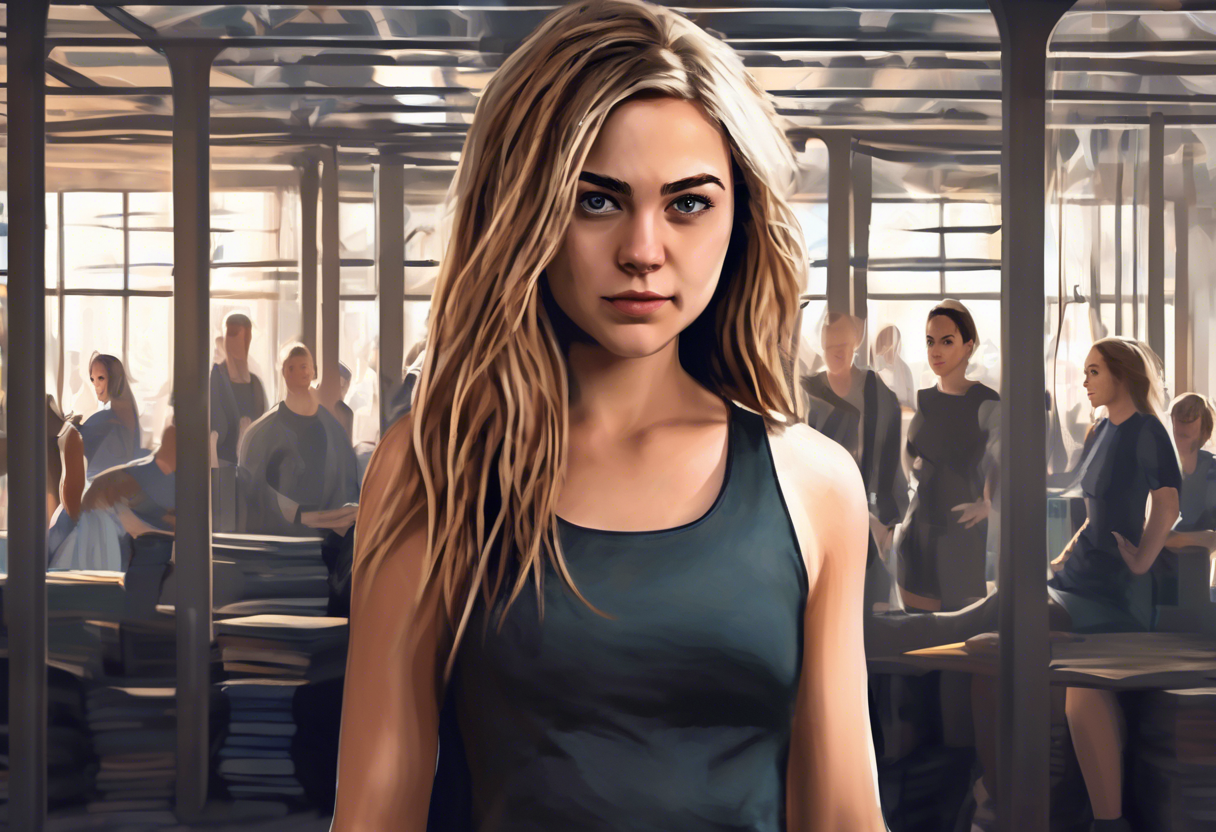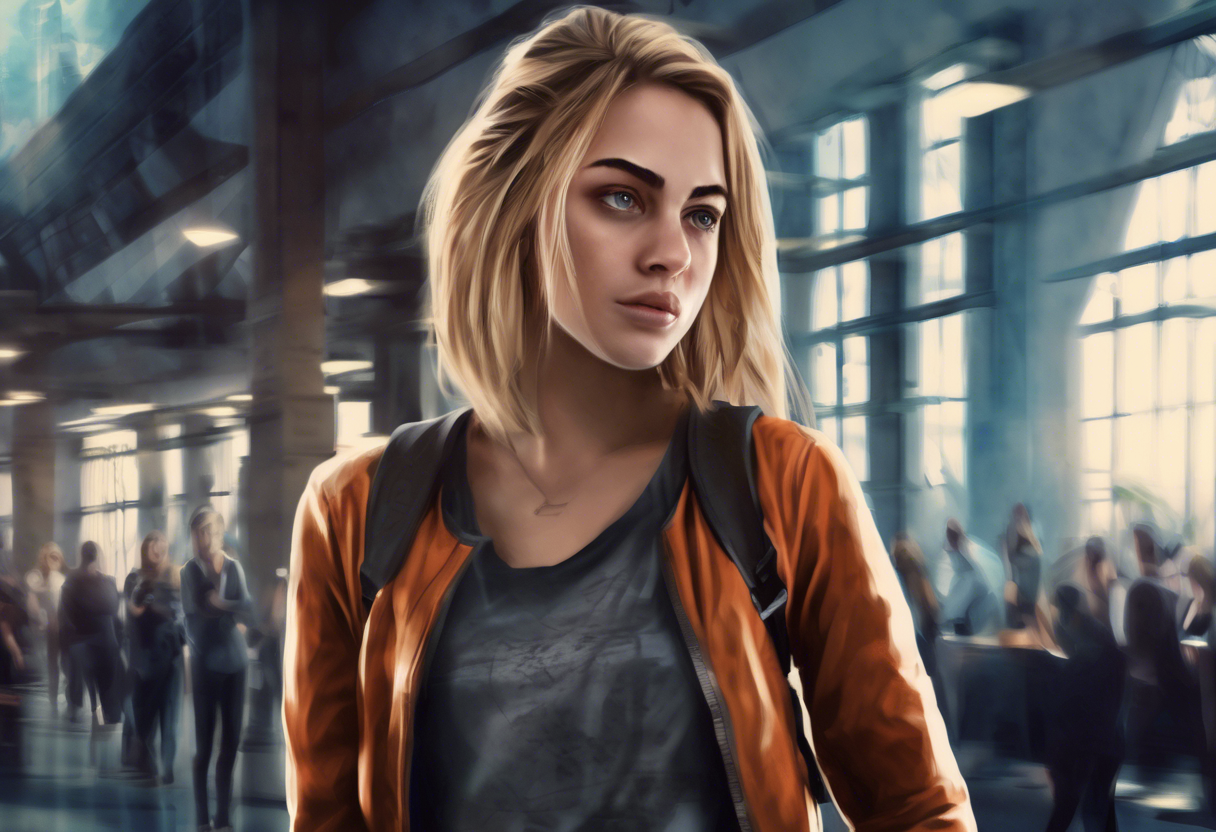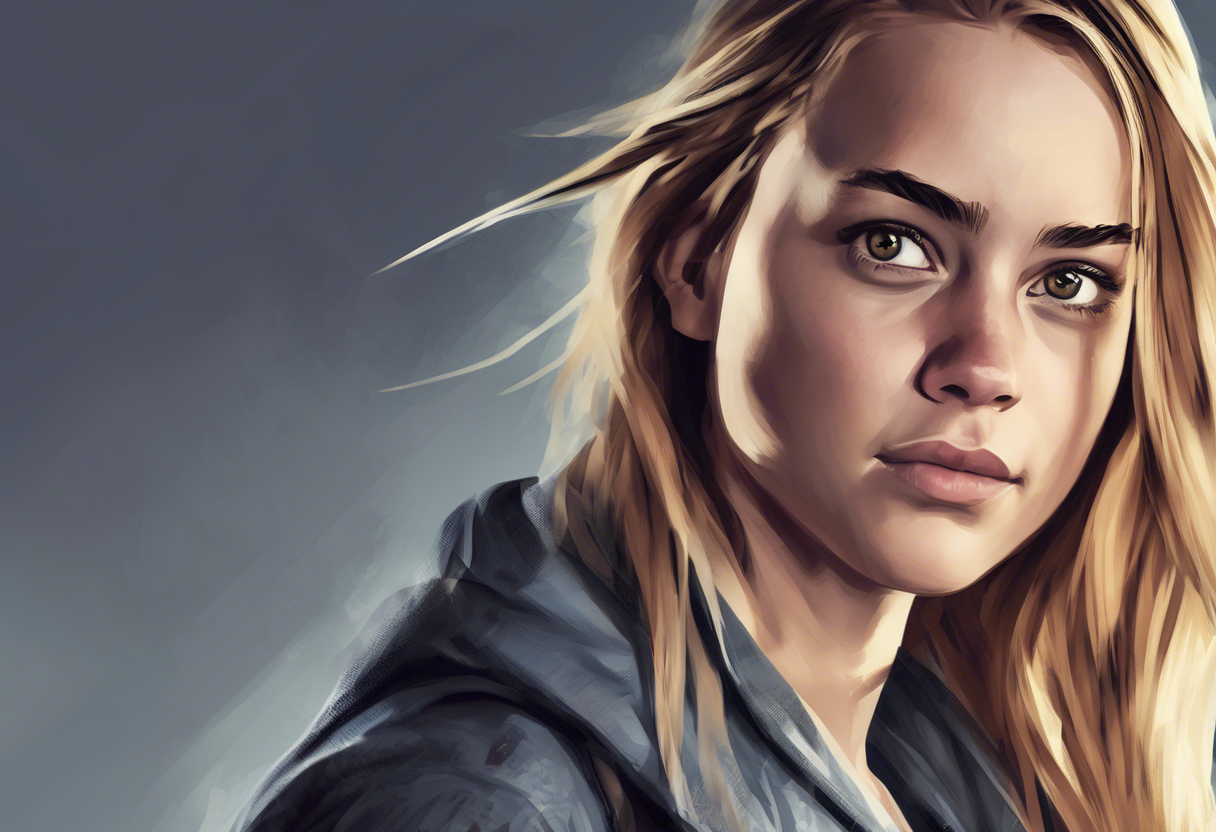Contents
Cara from the Divergent Series
Introduction
Cara, a significant character in the Divergent series by Veronica Roth, is the older sister of Will, a young man who plays a crucial role in the early stages of the narrative. Cara remains a member of the Erudite faction, known for its emphasis on intelligence and knowledge, even after her brother transfers to Dauntless. Her character is marked by her logical and understanding nature, which sets her apart in a world where emotions and actions are often driven by factional allegiances.
Cara’s backstory is intertwined with the broader narrative of the series, particularly through her relationship with her brother Will and her interactions with the protagonist, Tris. Her significance lies in her ability to understand and navigate the complex moral dilemmas presented in the series, often serving as a voice of reason and empathy.
In the context of literary traditions, Cara represents a character archetype that embodies rationality and compassion, traits that are crucial in dystopian fiction where characters often face harsh moral choices. Her character adds depth to the narrative, highlighting the importance of empathy and logical decision-making in a world fraught with conflict and factional divisions.
Role in the Story
Cara’s role in the story is primarily seen through her interactions with Tris and other characters, particularly in the second book, Insurgent. After Tris inadvertently kills Will during a simulation controlled by Erudite, Cara’s reaction is pivotal. Despite the tragic circumstances, Cara is extremely logical and can understand why Tris shot Will, which helps in mitigating the emotional fallout between Tris and other characters like Christina, who is deeply affected by Will’s death [1][5].
In Insurgent, Cara encourages Christina to forgive Tris, demonstrating her ability to see beyond immediate emotions and consider the larger context. This act of forgiveness is a critical moment in the narrative, as it helps in healing the rifts within the group and maintaining alliances that are essential for their survival.
Cara also defects from Erudite to join the loyal Dauntless during the war, showing her commitment to what she believes is right and her willingness to take a stand against the oppressive forces within her own faction [5].
Character Analysis
Cara’s personality is defined by her logical and analytical mind, a trait that is deeply ingrained in the Erudite faction. However, unlike some other Erudite characters, Cara’s logic is tempered with empathy and understanding. This balance makes her a compelling and relatable character, as she navigates the moral complexities of the series with a clear head and a compassionate heart.
Her motivations are rooted in a desire to do what is right and just, even if it means going against the norms of her faction. This is evident in her decision to defect from Erudite and support the Dauntless, which shows her commitment to ethical principles over factional loyalty.
Cara’s strengths include her ability to remain calm and rational in stressful situations, which often helps in resolving conflicts and making informed decisions. However, her flaws might include a tendency to overanalyze situations, which could sometimes delay immediate action.
Throughout the series, Cara’s character undergoes significant development as she confronts the harsh realities of the world she lives in. Her interactions with Tris and other characters force her to question her own beliefs and loyalties, leading to a deeper understanding of herself and the world around her.
Themes and Symbolism
Cara embodies several key themes in the Divergent series, most notably the theme of empathy and understanding. In a world where factions often prioritize their own interests over the well-being of others, Cara’s ability to see multiple perspectives and forgive past wrongs serves as a powerful symbol of the importance of compassion and empathy.
She also represents the theme of moral complexity, highlighting that decisions are rarely black and white. Her logical approach to understanding Tris’s actions and her subsequent forgiveness illustrate that even in the face of tragedy, there can be room for understanding and forgiveness.
Additionally, Cara’s character contributes to the theme of factional identity and the limitations it imposes. By defecting from Erudite, she shows that individuals can transcend their factional identities and act based on their own moral compass, rather than being bound by factional norms.
Cultural Impact
Cara’s character has had a notable impact on the cultural reception of the Divergent series. Her portrayal as a rational yet empathetic character has resonated with fans, who appreciate her nuanced and balanced approach to the conflicts in the series.
In the film adaptations of the series, Cara’s role, though not as central as some other characters, has been well-received for its consistency with the book’s portrayal. Her character adds depth to the narrative, making the films more engaging for audiences who appreciate complex character dynamics.
Cara’s influence on popular culture is seen in the way she represents a more balanced and empathetic approach to conflict resolution, a theme that is increasingly relevant in contemporary discussions about morality and ethics.
Critical Reception
Critics and audiences have generally praised Cara’s character for her logical and compassionate nature. Her ability to understand and forgive has been highlighted as a positive aspect of the series, adding depth and complexity to the narrative.
However, some critics have noted that Cara’s role, while significant, is somewhat limited compared to other characters. Despite this, her impact on key moments in the story is undeniable, and her character has been well-received for its contribution to the overall themes and plot of the series.
There have been varying interpretations of Cara’s role, with some seeing her as a symbol of the Erudite faction’s potential for good, while others view her as an individual who transcends factional boundaries. These interpretations reflect the complexity of her character and the nuanced way she is portrayed in the series.
Legacy
Cara’s enduring appeal lies in her unique blend of logic and empathy, making her a memorable and impactful character in the Divergent series. Her relevance in contemporary discussions about morality, ethics, and factional identity continues to inspire readers and audiences.
Her character has also influenced other works in the dystopian genre, where characters who embody both rationality and compassion are increasingly valued. Cara’s legacy is one of promoting understanding, forgiveness, and the importance of individual moral judgment in the face of societal pressures.







